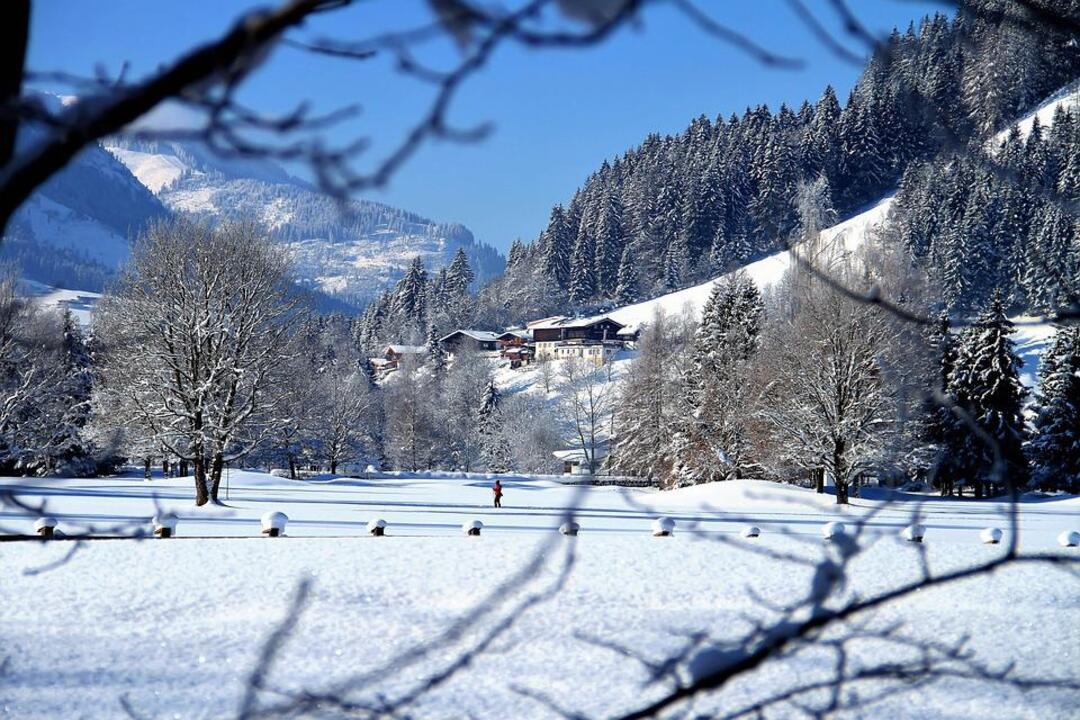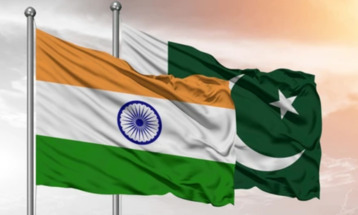-
Upcoming winter may reverse downward trend in global COVID-19 cases

Despite the weekly decline in Covid cases and deaths worldwide, there is a possibility of an increase in the number of the virus-related cases with the approach of winter.
Coronavirus cases that increased at certain intervals until the end of July this year across the world have been on a downward trend since the beginning of August, according to the Anadolu Agency.
World Health Organization (WHO) announced in its latest weekly COVID-19 report that the number of cases worldwide on Sept. 5-11 fell by 28% compared to the previous week.
In the same period, the number of virus-related deaths decreased by 22%.
With the decline in the case toll in the last week, the weekly global COVID-19 case numbers saw the lowest level since March 2020.
The WHO explains that the decrease in global cases is due to countries reducing their testing and monitoring capacities, while the drop in fatalities is attributed to the fact that new variants of the virus have a less lethal effect, the Anadolu Agency said.

WHO spokesperson Margaret Harris told Anadolu Agency that COVID-19 is not a seasonal virus.
This virus can spread to the human body every season, but when the weather gets colder, people tend to spend more time indoors, she warned, stressing that this is why the risk of transmission of the virus is higher in winter.
India approves its first nasal vaccine for Covid-19
Asked if WHO has a preliminary preparedness plan for this possible rise, Harris said that based on experience the organization has gained during the 32-month period of the pandemic, it has also prepared guidelines on what countries should do in the event of a possible increase in cases.
Harris stressed the necessity to increase virus-monitoring as well as the number of tests that many countries have recently decreased.
She also underlined the importance of vaccination, advising countries to ensure that they have “100% vaccination” in “high-risk groups" such as "older people, health care workers, people with underlying conditions.”
Russia reports 50,000 COVID-19 infections for second day running
During winter, “hospitals are overwhelmed” as the cold weather causes a radical increase in the case number of all kinds of illnesses, not just COVID-19, Harris said, noting: “You must increase the capacity in your hospitals.”
“That means supporting your health workforce, making sure you've got enough nurses, doctors, ancillary care workers, ambulances, because the threat to your system is not just COVID-19, it is all illness,” she warned.
“Now is the time to really do that work,” she added.
levantnews-aa
You May Also Like
Popular Posts
Caricature
BENEFIT Sponsors BuildHer...
- April 23, 2025
BENEFIT, the Kingdom’s innovator and leading company in Fintech and electronic financial transactions service, has sponsored the BuildHer CityHack 2025 Hackathon, a two-day event spearheaded by the College of Engineering and Technology at the Royal University for Women (RUW).
Aimed at secondary school students, the event brought together a distinguished group of academic professionals and technology experts to mentor and inspire young participants.
More than 100 high school students from across the Kingdom of Bahrain took part in the hackathon, which featured an intensive programme of training workshops and hands-on sessions. These activities were tailored to enhance participants’ critical thinking, collaborative problem-solving, and team-building capabilities, while also encouraging the development of practical and sustainable solutions to contemporary challenges using modern technological tools.
BENEFIT’s Chief Executive Mr. Abdulwahed AlJanahi, commented: “Our support for this educational hackathon reflects our long-term strategic vision to nurture the talents of emerging national youth and empower the next generation of accomplished female leaders in technology. By fostering creativity and innovation, we aim to contribute meaningfully to Bahrain’s comprehensive development goals and align with the aspirations outlined in the Kingdom’s Vision 2030—an ambition in which BENEFIT plays a central role.”
Professor Riyadh Yousif Hamzah, President of the Royal University for Women, commented: “This initiative reflects our commitment to advancing women in STEM fields. We're cultivating a generation of creative, solution-driven female leaders who will drive national development. Our partnership with BENEFIT exemplifies the powerful synergy between academia and private sector in supporting educational innovation.”
Hanan Abdulla Hasan, Senior Manager, PR & Communication at BENEFIT, said: “We are honoured to collaborate with RUW in supporting this remarkable technology-focused event. It highlights our commitment to social responsibility, and our ongoing efforts to enhance the digital and innovation capabilities of young Bahraini women and foster their ability to harness technological tools in the service of a smarter, more sustainable future.”
For his part, Dr. Humam ElAgha, Acting Dean of the College of Engineering and Technology at the University, said: “BuildHer CityHack 2025 embodies our hands-on approach to education. By tackling real-world problems through creative thinking and sustainable solutions, we're preparing women to thrive in the knowledge economy – a cornerstone of the University's vision.”
opinion
Report
ads
Newsletter
Subscribe to our mailing list to get the new updates!






















